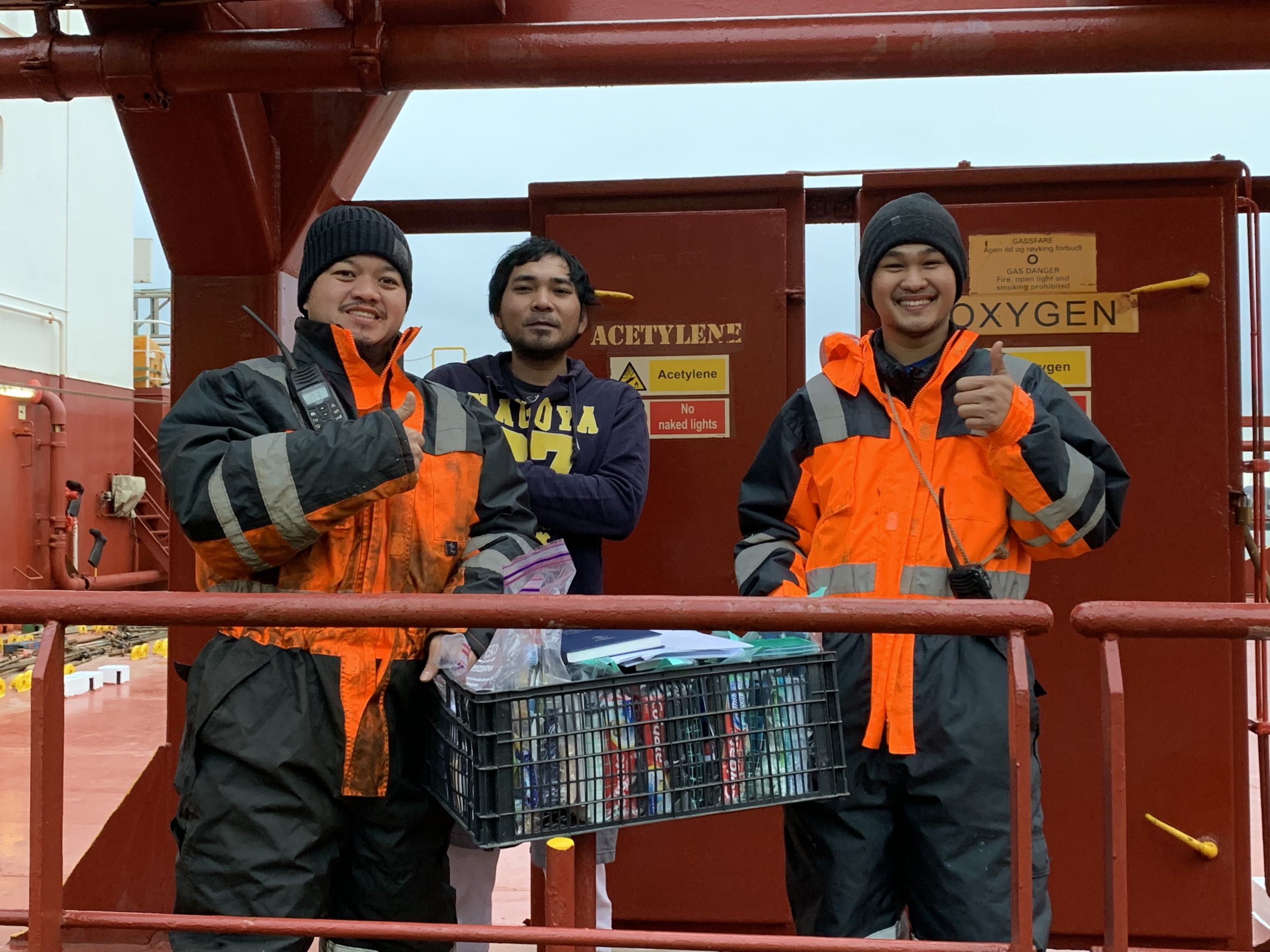What we do
Home > What we do
What we do
Supporting Seafarers
For over 170 years, we have provided a lifeline to men and women, from all nations, who work at sea. Our chaplains, with your support, offer compassion, friendship and support for their physical, emotional and spiritual needs.
If you or a loved one have ever had to isolate or remain housebound, you’ll know the feeling of disconnection that seafarers feel on a much bigger scale. With quick turnarounds at port, they rarely have the opportunity to leave their ship and get on dry land.
Over the years, our chaplains and volunteer ship visitors have boarded thousands of ships when they arrive in port and have connected with tens of thousands of crew, both male and female.



What we do
Do you know?
90% Without seafarers the global economy would collapse!
Nine months. They work long hours and have little time allowed ashore before setting sail again.
Storms, piracy, loneliness, isolation, injury and little or no time off the ship add to the mental and physical strain.
527 were killed and 509 were declared as missing.
None. Some seafarers can earn less than $1,000 per month working long hours with no days off.



What we do
Physical Needs
Physical needs are met by supplying:
- Toiletries
- Warm Knitted Hats
- Teddies (to take home)
- Scarves
- Clothing
- Some Chocolates and Snacks
What we do
Emotional Needs
Emotional needs are met by:
- Assisting them to keep in contact with their loved ones
- Listening to their concerns or fears
- By visiting sick or injured seafarers in hospital
- Being a vital link to the family back home






What we do
Spiritual Needs
Spiritual needs are met by:
- Personal Prayer
- The provision of Bibles and other Christian materials in various languages
- Church services, Bible studies and singing which are regularly held on board the ships
What we do
Practical Needs
Practical needs are met through:
- Transportation to local shops, church, local attractions when shore leave is permitted
- Sim Cards for mobile phones or mobile wi-fi
- Providing free wi-fi
- Helping to change currency to send money home to seafarers' families






What we do
Family Support
Life can be lonely and isolated for seafarers as weeks and months pass by. Worry and concern about family life back home brings with it homesickness, anxiety and stress. It’s no surprise that seafarers are so grateful when we go on board with a supply of SIM cards to purchase, or with our MI-Fi for calls to be made to family.
Anxiety can also mount up if money cannot be timely transferred back home to pay the bills or towards the construction of a promised new house.
The following facts should underline for you what this time in the life of a seafarer can be like and how your prayer and support can make a difference.
- By the time a seafarer’s son or daughter becomes a teenager they may have been at home with them for only 3-4 years in total.
- When home for up to 3 months the seafarer often has to undertake job-related appointments and training courses which can drastically reduce time they can spend with their family.
- The wife has to assume the role of both mother, father and leader. Apart from possibly feeling like a stranger to the children, a seafarer will often have lost their role in helping to lead their family. This can regularly lead to conflict.
- The younger children may view their father as a type of Santa figure, often bringing home lots of expensive gifts to compensate for their lengthy time away but find it difficult to lovingly bond, respect and appreciate him.
- An unfortunate reality of loneliness and separation is that there can be greater temptation for unfaithfulness, both at home and at sea.

